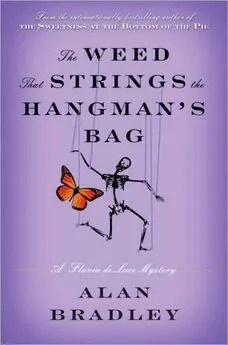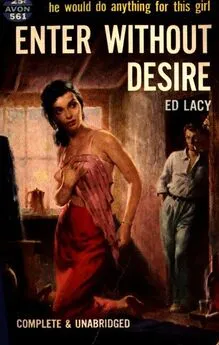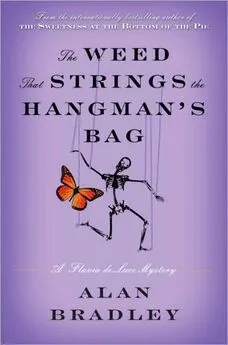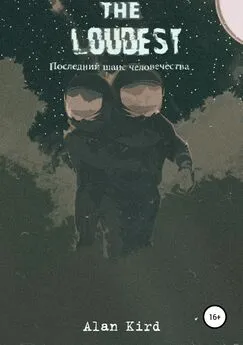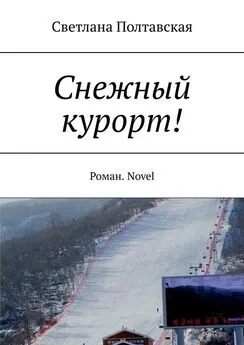Alan Bradley - A Red Herring Without Mustard: A Flavia de Luce Novel
- Название:A Red Herring Without Mustard: A Flavia de Luce Novel
- Автор:
- Жанр:
- Издательство:неизвестно
- Год:неизвестен
- ISBN:нет данных
- Рейтинг:
- Избранное:Добавить в избранное
-
Отзывы:
-
Ваша оценка:
Alan Bradley - A Red Herring Without Mustard: A Flavia de Luce Novel краткое содержание
A Red Herring Without Mustard: A Flavia de Luce Novel - читать онлайн бесплатно полную версию (весь текст целиком)
Интервал:
Закладка:
“The vicar tells me that the choir is in need of several extra voices, and I’ve assured him that you’d be happy to pitch in. They’ve laid on an extra practice this evening at six-thirty sharp.”
I was so astonished I couldn’t think of a single word to say.
Later, I thought of one.
“Don’t dawdle,” Feely said, as we marched across the fields towards the church. She had been summoned to sit in, as she sometimes did, for Mr. Collicutt.
“Where’s old Cockie, then,” I had asked, and waited for the inevitable explosion. Feely, I think, was half in love with the handsome young man who had recently been appointed organist at St. Tancreds. She had even gone so far as to join the choir because of the superior view of his bobbing blond curls afforded by a seat in the chancel.
But Feely wasn’t biting—in fact, she was strangely subdued.
“He’s adjudicating the music festival in Hinley,” she said, almost as if I’d asked a civil question.
“Do, re, mi, fa, so-what?” I sang loudly, and intentionally off-key.
“Save it for the sinners,” Feely said pleasantly, and walked on in silence.
Half a dozen boys in Scout uniforms, all members of St. Tancred’s choir, were shoving one another about in the churchyard, playing a rough game of football with someone’s hat. One of them was Colin Prout.
Feely stuck her first and last fingers into her mouth and let out a surprisingly piercing and unladylike whistle. The game broke up at once.
“Inside,” Feely ordered. “Hymns before horseplay.”
Since its scoutmaster and several of the boys were also members of the choir, the Scout troop would not meet until after choir practice.
There were a couple of anonymous groans and whispers, but the boys obeyed her. Colin tried to scuttle past, his eyes fixed firmly on the ground.
“Hoy, Colin,” I said, stepping in front of him to block his way. “I didn’t know you were a Scout.”
He put his head down, jammed his hands into the pockets of his shorts, and sidestepped me. I followed him into the church.
The older members of the choir had already taken their places, chatting away to one another as they awaited the arrival of the organist, the men on one side of the chancel, the women facing them, on the other.
Miss Cool, who was both Bishop’s Lacey’s postmistress and its confectioner, shot me a beaming smile, and the Misses Puddock, Lavinia and Aurelia, who owned the St. Nicholas Tea Room, gave me identical twiddles of their fingers.
“Good evening, choir,” Feely said. It was a tradition that dated back into the mists of Christian history.
“Good evening, Miss de Luce,” they responded, automatically.
Feely took her seat on the organ bench, and with no more than a “Hymn number three hundred and eighty-three,” barked out over her shoulder, launched into the opening bars of “We Plow the Fields and Gather,” leaving me scrambling to find the page in the hymn-book.
“ We plow the fields and scatter, ” we sang,
“ the good seed on the land ,
but it is fed and watered
by God’s almighty hand;
He sends the snow in winter ,
the warmth to swell the grain ,
the breezes and the sunshine ,
and soft refreshing rain. ”
As I sang, I thought of Brookie’s body dangling from Poseidon’s trident in the downpour. There had been nothing soft or refreshing about that particular storm—in fact, it had been one hell of a cloudburst.
I looked across the chancel at Colin. He was singing with intense concentration, his eyes closed, his face upturned to the day’s last light which was now seeping in through the darkening stained-glass windows. I’d deal with him later.
“ He only is the Maker
of all things near and far;
He paints the wayside flower ,
He lights the evening star;
the winds and waves obey Him— ”
The organ screeched to a halt in the middle of a note, as if someone had strangled it.
“De Luce,” a voice was saying sourly, and I became aware that it was Feely’s.
She was addressing me!
“The voice cannot emerge through a closed mouth.”
Heads turned towards me, and there were a couple of smiles and titters.
“Now then, again—from ‘the winds and waves obey Him—’ ”
She struck a leading note on the keyboard, and then the organ roared back to life and we were off again.
How dare she single me out in that manner? The witch! Just you wait, Ophelia Gertrude de Luce … just you bloody well wait !
To me, the choir practice seemed to go on forever, perhaps because there’s no joy in simply mouthing the words—in fact, it’s surprisingly hard work.
But at last it was over. Feely was gathering up her music and having a jolly old chin-wag with Cynthia Richardson, the vicar’s wife, whose fan club did not count me among its members. I’d take the opportunity to slip away unnoticed and tackle Colin in the churchyard with a couple of interesting questions that had come to mind.
“Flavia—”
Drat!
Feely had broken off her conversation, and was bearing down upon me. It was too late to pretend I hadn’t heard her.
She seized my elbow and gave it a furtive shake. “Don’t go sneaking off,” she said in an undertone, using her other hand to wave a cheery good-bye to Cynthia. “Father will be here in a few minutes, and he has asked in particular that you wait.”
“Father here? Whatever for?”
“Oh, come off it, Flavia—you know as well as I do. It’s cinema night, and Father was quite right—he said you’d try to dodge it.”
She was correct on both counts. Although I had since put it out of my mind, Father had announced suddenly several weeks earlier that we didn’t get out enough as a family—a situation that he intended to rectify by subscribing to the vicar’s proposed cinema series in the parish hall.
And sure enough—here was Father now with Daffy, at the church door, shaking hands with the vicar. It was too late to escape.
“Ah, Flavia,” the vicar said, “thank you for adding your voice to our little choir of angels, as it were. I was just telling your father how pleased I was to see Ophelia on the organ bench. She plays so well, don’t you think? It’s a treat to see her conducting the choir with such verve. ‘And a little child shall lead them,’ as the prophet Isaiah tells us … not, of course, that Ophelia’s a little child, dear me, no!—far from it. But come away, the Bijou Cinema awaits!”
As we strolled through the churchyard towards the parish hall, I noticed Colin flitting from gravestone to gravestone, engaged apparently in some elaborate game of his own invention.
“I worry about that boy,” I heard the vicar confiding to Father. “He has no parents, and now, with Brookie Harewood no longer around, as it were, to look out for him—but I’m chattering—ah, here we are … shall we go in?”
Inside, the parish hall was already uncomfortably warm. In preparation for the pictures, the blackout curtains had been drawn against the evening light, and the place was already filling with that humid fug that is generated by too many overheated bodies in a confined space.
I could distinguish quite clearly the many odors of Bishop’s Lacey, among them the various scents and shaving lotions; of talcum powder (the vicar); of bergamot scent (the Misses Puddock), of rubbing alcohol (our neighbor Maximilian Brock); of boiled cabbage (Mrs. Delaney), of Guinness stout (Mr. Danby), and of Dutch pipe tobacco (George Carew, the village carpenter).
Since Miss Mountjoy, with her pervading odor of cod-liver oil, was nowhere in sight, I circulated slowly round the hall, sniffing unobtrusively for the slightest whiff of fish.
“ Oh, hello, Mr. Spirling. It’s nice to see you . (Sniff) How’s Mrs. Spirling getting on with her crocheting ? Gosh, it’s such a lot of work, isn’t it? I don’t know where she finds the time. ”
In the center of the room, Mr. Mitchell, the proprietor of the photographer’s shop in the high street, was grappling with writhing snakes of black cine film, trying to feed them into the maw of a projector.
I couldn’t help but reflect that the last time I’d been in the parish hall, it had been on the occasion of Rupert Porson’s final puppet performance—on this same stage—of Jack and the Beanstalk. Poor Rupert , I thought, and a delicious little shudder shook my shoulders.
But this was no time for pleasantries—I had to keep my nose to the grindstone, so to speak.
I rejoined Father, Daffy, and Feely just as the front row of houselights was being switched off.
I will not bother quoting the vicar’s preliminary remarks about “the growing importance of film in the education of our young people,” and so forth. He did not mention either Brookie’s death or the attack upon Fenella, although this was perhaps neither the proper time or place to do so.
We were then plunged into a brief darkness, and a few moments later the first film flashed onto the screen—a black-and-white animated cartoon in which a chorus of horribly grinning cats in bowler hats bobbed up and down in unison, yowling “Ain’t We Got Fun?” to the music of a tinny jazz band.
Mercifully, it did not last long.
In the brief pause, during which the lights came up and the film was changed, I noticed that Mrs. Bull had arrived with Timofey and her toddler. If she saw me among the audience, she did not let on.
The next film, Saskatchewan: Breadbasket of the World , was a documentary that showed great harvesting machines creeping across the flat face of the Canadian prairies, then rivers of grain being poured into railway hopper cars, and the open hatches of waiting cargo ships.
At the end of it I craned my neck for a glimpse of Colin Prout—yes, there he was at the very back of the hall, returning my gaze steadily. I gave him a little wave, but he made no response.
The third film, The Maintenance of Aero Engines: Part III , must have been something left over from the war—a film that was being shown simply because it happened to be in the same box as the others. In the light reflected from the screen, I caught Father and Feely exchanging puzzled glances before settling down to look as if they were finding it terrifically instructive.
The final feature on the program was a documentary called The Versatile Lemon , which, aside from the narrator’s mentioning that lemons had once been used as an antidote to a multitude of poisons, was a crashing bore.
I watched it with my eyes shut.
The new moon was no more than a sliver of silver in the sky as we made our way homeward across the fields. Father, Daffy, and Feely had got slightly ahead, and I trudged along behind them, immersed in my own thoughts.
“Don’t dawdle, Flavia,” Feely said, in a patient, half-amused voice that drove me crazy. She was putting it on for Father.
“Squid!” I said, warping the word into a sneeze.
 TWENTY-FOUR
TWENTY-FOUR 
MY SLEEP WAS TORN by images of silver. A silver horse in a silver glade chewed silver grass with silver teeth. A silver Man in the Moon shone in the sky above a silver caravan. Silver coins formed a cross in a corpse’s hand. A silver river glided.
When I awoke, my thoughts flew back at once to Fenella. Was she still alive? Had she regained consciousness? Porcelain claimed she had and the vicar said she hadn’t.
Читать дальшеИнтервал:
Закладка:

